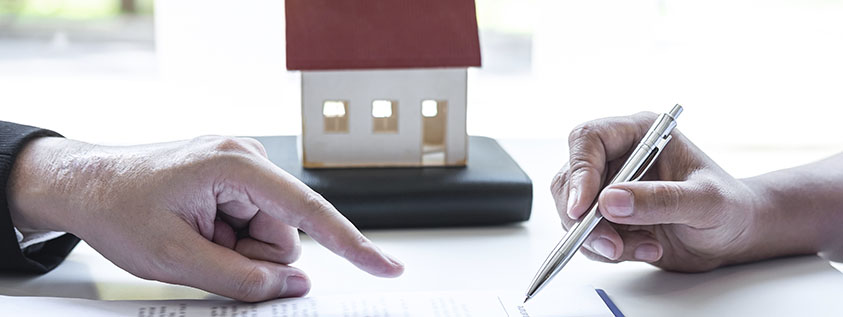8 Tips For Selling Your Property In Spain
Are you considering selling your property in Spain and getting the most out of it financially? If so, then this guide is for you. In this article, we will share with you 8 tips for selling your property in Spain. Read on!
Content
Selling a property in Spain
With a market as competitive as Spain’s can be, understanding what steps to take before listing your home is important if your hope to make a profitable sale. There are some great tips for selling your property in Spain quickly. From preparing the house for listing to dealing with solicitors and taxes once a purchase has been made, our guide will shed light on how best to sell real estate in Spain.
1. Tidy up and declutter (so obvious but so true)
Get the house cleaned and arranged before you show it to a potential buyer. Never leave your property messy and unorganized during the selling process. Make a deep clean and ensure that all your items are removed from the property. This includes family photos or any furniture you plan on taking with you when you leave home. It will surely make a big difference.
According to real estate agents, when a property is cluttered with personal items it becomes difficult for someone to connect emotionally. This happens because potential buyers think the space already belongs to someone else. By offering possible buyers a blank canvas, they can start to visualize their own lifestyle in the space.
2. Use an estate agent – but be aware of their fees
The most popular and practical way to sell a property in Spain is to use the services of an estate agent. However, they don’t come cheap when it comes to estate agent fees.
Depending on what area of the country you live in, estate agent’s fees hover around 3%-6% of your home’s value – so definitely compare prices when shopping for a realtor. Considering all of the advantages of using an estate agent, such as marketing and paperwork, is usually worth the expense.
To get a good idea of where to start, ask for recommendations from people in your network who recently utilized an estate agent. If not possible, make sure you have conversations with various agents and find one that you can trust and feel comfortable working with.
3. Know the Spanish property market
When selling property, it’s important for property owners to understand the local market and the selling price. Research how your area is doing and keep up to date with property prices in the neighborhood. This gives you a better understanding of what you can realistically expect when it comes to selling your home.
Learning about the Spanish market will help you distinguish between a realistic offer and one that’s not worth considering. You must consider current selling and purchase price for similar properties, potential buyers in the area, and ongoing trends that could affect the sale of your property. It’s also important to research local municipal taxes, capital gains tax, and any other taxes or fees you may be liable for when selling the property.

4. Do the obvious repair jobs (this matters a lot)
Think from the buyer’s perspective -would you buy a house in deplorable conditions? Now, if you’re selling a property, what would you do to make it attractive to potential buyers?
Before listing the property on real estate websites or through an agent, fixing any obvious repair work around the house may be wise. This includes replacing broken tiles, repainting walls and fixing any minor damage that may dampen the property’s overall appearance. Doing so will help make it more attractive to potential buyers, increasing the chances of a successful sale.
Buyers also don’t want a bunch of work to do after they move in. They certainly don’t want to start looking for a local plumber, electrician or builder. New owners are already feeling overwhelmed by the move itself.
5. Prepare all the mandatory documents
If you want to sell property in Spain, take your time, and have all the necessary documents in order. These include your Title Deed or Escritura, a Bank Account Number, any Building Licenses from local municipal tax and the Energy Performance Certificate.
Be sure to have your paperwork ready and organized. It might not be the most exciting task, but it is an essential part of shifting real estate quickly. Buyers or their legal representatives will likely ask for all applicable documents during the sale process—many of which you requested when purchasing the asset.
If you purchased your Spanish property ages ago and don’t know where to get the paperwork, ask a real estate agent in Spain to provide an informational checklist. They will guide you on what documents are essential for the process.
When selling a property, time often works against you as potential buyers may lose interest if too much time passes before closing a sale. A prolonged sales process allows potential buyers to become less interested and may seek other options. In real estate, quick sales are beneficial. In other words, don’t let a lack of organization extinguish your sale’s spark.
6. Speak to a currency broker
Many sellers overlook the impact of exchange rate movements on selling their Spanish property. Those are costly mistakes because Euro to Pound exchange rates can influence earnings. Not only can you lose money if you’re not careful but moving currency through a broker, as opposed to your bank, can save you thousands in transaction fees and make sure that you get the very best exchange rates available at any given time.
You will be dealing with large sums of money, so it’s sensible to get professional advice from a currency broker when selling your Spanish property. A good currency broker offers more competitive rates versus banks and can track daily changes to currency rates and alert you if the market is moving to your liking.

7. Avoid banker’s draft fees
When selling a property in Spain, the last thing you want is to incur an excessive fee from your bank. But this unfortunate scenario occurs all too often. The typical process requires that after a Notary has confirmed the sale, they will present you with a banker’s draft containing the proceeds of your sale. To avoid this hefty expense, knowing what alternatives are available for receiving payment when closing on a Spanish property transaction is important.
When you’re ready to access the funds, it’s time to get them deposited into your bank account. However, some Spanish banks usually charge clients a fee for the costs involved.
8. Create a detailed listing
Creating a detailed listing of your property is essential when selling in Spain. Include photos, descriptions of the features or amenities nearby, and any other important details of the property. Additionally, you should include the sale price, any possible fees or taxes associated with closing on the property, and the most important details about its location. This can be a great way to attract potential buyers who are looking for specific features in their new home – such as proximity to beaches, schools, nightlife, or other amenities. Create your listing with the buyer in mind and highlight all of your property’s best features.
Property owners: What fees do you pay when selling a property in Spain?
Estate agents’ commissions may vary from 4% to 7%, not including VAT, which is currently 21%. This fee must be paid when the deed of sale is finalized, and the total amount has been collected. Notice that you can deduct this cost can be deducted for determining any taxable Capital Gain.
Also, you will need to pay an energy performance certificate, which is usually between €150-€500, and plusvalía.
Plusvalía is a specific local municipal tax imposed on the increase in the value of urban land. It is based on the cadastral valuation of the property and the duration of ownership. This tax is levied upon the transfer or sale of a property, with the seller typically responsible for its payment. However, according to relevant regulations, both parties involved in the transaction have the freedom to negotiate and agree upon the party liable for paying the plusvalía tax.
A word from SpainDesk
With careful planning, plenty of research, and a willingness to understand the market, you are certainly well-equipped to benefit from Spain’s real estate boom and make your house sale successful.
Remember that your property will not be the only one on the regional trading block. Being savvy about pricing, making sure you have support from the right experts in finance, tax, and law, and keeping up-to-date with market trends will get you the desired result while keeping things on track.
Last, take your time when it comes to choosing a broker or agent to help you sell your property in Spain – this is key to success!
Disclaimer: Information on this page may be incomplete or outdated. Under no circumstances should the information listed be considered professional legal advice. We highly recommend seeking guidance from a legal expert if you lack extensive knowledge or experience dealing with any of the procedures outlined in these articles.

